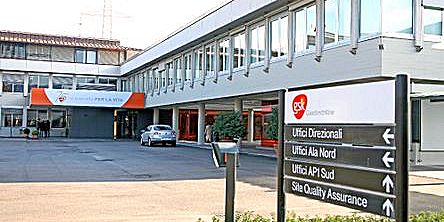Italy. Gsk opens mobility for 60 workers from 16 March. For the most part, these are pharmaceutical informers who operate throughout Italy, but who report to Verona for the type of products marketed, and about twenty other workers that the company is identifying. In particular, Gsk would be willing to market the Stiefel line in a different way (without ISF).
Glaxo cuts, 60 workers on the move
Criticize the unions: "Strange decision after the announcement of investments"
«
Gsk, in fact, just last Monday concluded the purchase of the activities dedicated to vaccines from Novartis, with an investment of 5.25 billion dollars: the Novartis headquarters in Siena passed to Gsk and, just to check if there are any problems employment, tomorrow the union organizations will meet in Bologna. What emerges are the concerns about the future of the Verona headquarters which, probably, will become the headquarters of GSK in Italy, but which seems destined to lose its productive and industrial function.
«We notice the company's constant disengagement from the Verona site – analyzes Dennis Gambillara of Uiltec Verona – so much so that we have strong doubts about the role of our center for the future. What we are asking the company is a clear industrial plan from GSK in Italy and in Verona». The fact that, in our city, there is a concentration of "mature" productions, such as that of cephalosporins, does not help either. «In addition - underlines Luigi Santoni of Filtea CGIL Verona - we find ourselves having to face a reduction in personnel every year. The Verona site is becoming impoverished, the number of informants linked to the medicines produced here is reduced and the company is not available to discuss alternative tools to mobility».
GSK fires more than 100 workers (ISF) in China for misconduct as a result of the corruption scandal
Fired employees contest GSK decision; threaten legal action
March 9, 2015 | By Carly Helfand | Fierce Pharma
Dopo aver aumentato il monitoraggio dei rimborsi spese, dopo aver aumentato i suoi sforzi di controllo e portato il problema in uno studio legale e a consulenti esterni per rivedere le sue operazioni in Cina, il gigante farmaceutico ha preso “provvedimenti disciplinari nei confronti di dipendenti il cui comportamento ha violato i valori della GSK e il Codice di Autodisciplina”, si legge in una dichiarazione rilasciata alla FiercePharmaAsia . Tali violazioni hanno avuto luogo prima della metà del 2013, quando i funzionari cinesi hanno colpito la società con accuse di corruzione per un totale di $ 489.000.000.
But the laid-off employees plan to protest the measure, according to a statement seen on Bloomberg. Former employees contest the decision of the British pharmaceutical company, and a worker told the press that about half of them intend to complain to the Chinese labor authorities.
In una dichiarazione, secondo loro, Glaxo ha agito senza “produrre alcuna prova di violazioni delle regole ai dipendenti,” e non offrono “alcuna compensazione o ragionevole comunicazione”. Sulla loro agenda: cercare trattative di compensazione con la società, riprendere il lavoro e sanare la loro reputazione.
Non è il primo turno di licenziamenti di GSK dopo lo scandalo di corruzione – e non è la prima volta che tali licenziamenti suscitano protesta. Lo scorso luglio, un trio di ex membri dello staff ha citato in giudizio l’azienda per il cosiddetto licenziamento illegale, chiedendo due mesi di stipendio per ogni anno di impiego in Glaxo. Uno dei protagonisti ha detto che GSK ha incoraggiato alcuni dipendenti cinesi a dimettersi sulla scia dello scandalo e ha minacciato altri di risoluzione dei contratti e di cattive referenze.
Ma, come CEO, Andrew Witty lavora per mettere in sesto la barca in Cina – e riparare la reputazione macchiata di GSK, dopo una serie di altre accuse di corruzione in Medio Oriente e altrove – e la società è ferma nella sua posizione contro i cattivi comportamenti.
“Indipendentemente dalla scala di giudizio, non tollereremo la cattiva condotta”, dice in una sua dichiarazione. “Quando si è trovata la prova di cattiva condotta, prendiamo appropriate azioni disciplinari fino al licenziamento.”
The bitter awakening after the season of big acquisitions
Tough times for GSK CEO, salary and benefits package cut by 56%
The reason lies in the fact that 2014 was a very difficult year for the GSK group and this strongly influenced the shareholders' assessment of the board's performance. Among the major points of dissatisfaction of shareholders there are certainly the sales performance of Advair, which in the US sold 10% less than expected, and this forced GSK to adjust sales prices downwards in order to maintain the market share share.
Advair's disappointing results also forced a new $$1.6bn cost-cutting program and with it the layoff of 900 North Carolina R&D and sales network employees. The current year will probably be even more difficult for Andrew Witty, as he will have to manage the integration of the vaccine division he has just received from Novartis in exchange for the oncology sector and the establishment of a joint venture in the Consumer Health sector.
(Source Bloomberg)
